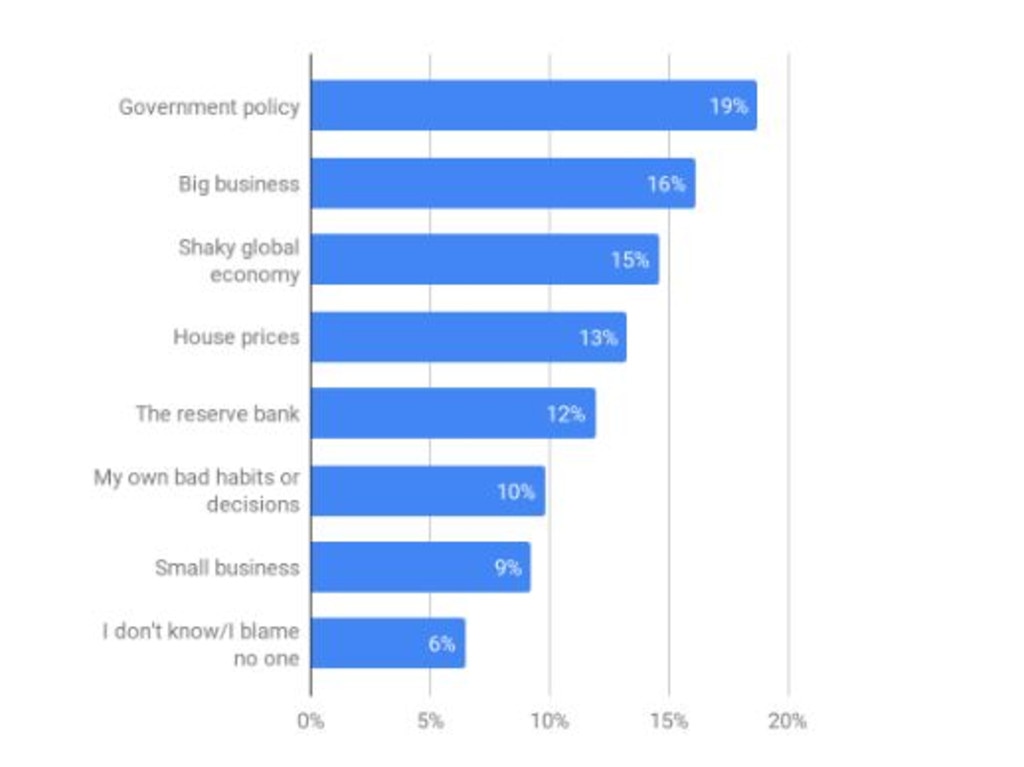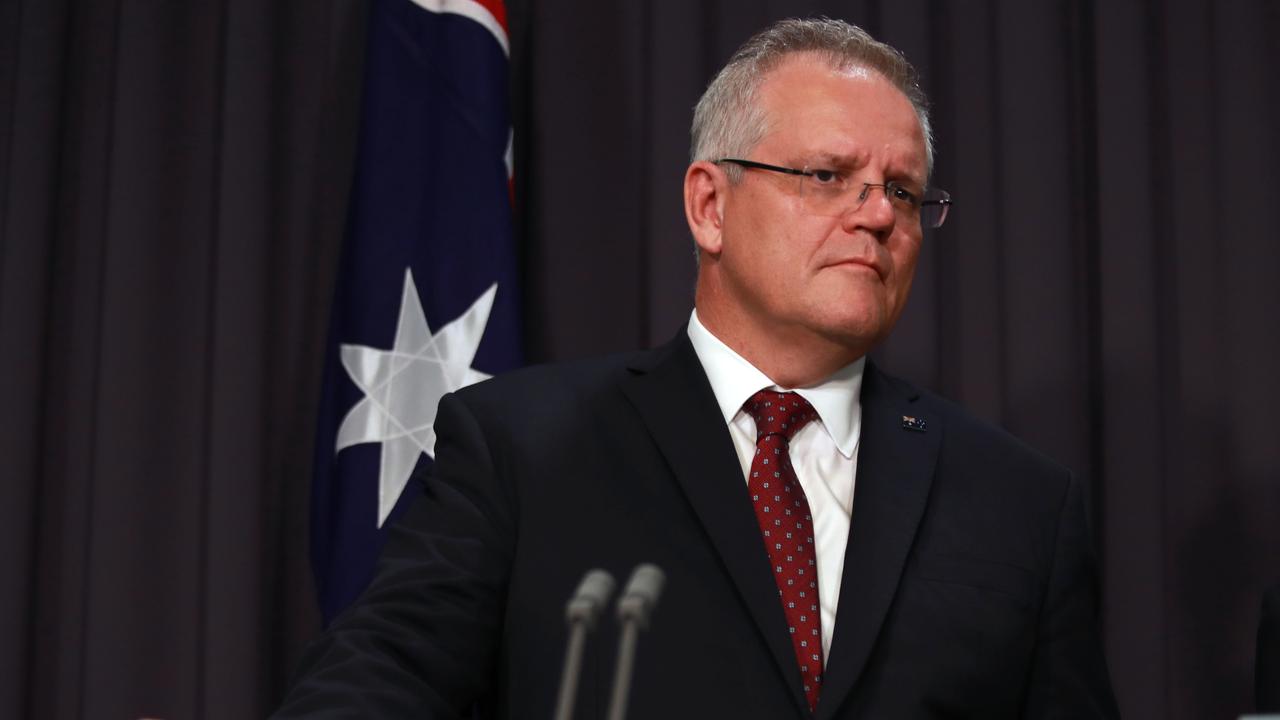‘A complete failure’: Government blamed for Australia’s cost of living burden
Australians have revealed their crippling money struggles – and they’re pinning the blame for our rising cost of living directly on our leaders.
Soaring cost of living pressures are weighing on family budgets and stifling the national economy — and Australians say they know exactly who to blame.
Government policy has allowed utilities, health care, education, insurance and other bills to skyrocket, combining with stagnant wage growth to cripple household expenditure, according to news.com.au’s new Cost of Living Survey.
And economists agree, criticising the government for privatising industries and underestimating the true pressure squeezing everyday Aussies.
Every two years, news.com.au runs its Cost of Living Survey to learn more about our readers’ biggest household money worries.
The results of the most recent survey are in, and news.com.au has now kicked off the Money Project in response, which will reveal the biggest money challenges facing Australian households and offer practical help on how to get your finances in shape for 2020.
Families and individuals are feeling the pinch across the country and 19 per cent of respondents say these struggles are the direct result of government policy — making it the leading assumed cause ahead of big business, a shaky global economy, house prices and the Reserve Bank of Australia.
“The huge increases in the electricity and gas prices have caused a nightmare for me,” one respondent said.
RELATED: Survey reveals impact of poor wage growth
RELATED: Aussies’ common struggle to make ends meet
RELATED: Household bills overtake rent and mortgages as money worries
The Australia Institute’s chief economist Richard Denniss said the privatisation of critical industries is reaching further into the pockets of Australians.
“So many of the key drivers of cost of living increases are now the absolute failure of government policy,” he told news.com.au.
“Private health insurance, private school fees, child care fees; all of these are going up and up even though the government is spending billions of dollars in an attempt to push them down.”
When asked if Dr Denniss was hopeful the 2020 budget would provide any relief to ease the burden on those struggling, his answer was emphatic.
“No,” he said.
“What’s likely is that even more taxpayers’ money will be given to these industries and what’s likely is those industries will continue to increase their prices.
“The cost of private health subsidies has never been bigger, the amount of money we give to private schools has never been bigger, but the prices of these services have also never been higher.
“We can keep going down the wrong direction but we shouldn’t be surprised that we keep getting the same results.”

The Morrison government’s $158 million tax cut package for lower to middle income earners was aimed at reducing the burden of household costs by stimulating the economy.
The central bank tried to help, too. Three interest rate cuts in 2019 wiped hundreds of dollars off monthly mortgage repayments in an effort to seduce an uptick in consumer activity.
“In the last six months alone, over eight million Australians have received more than $6 billion in additional income, contributing to the fastest increase in household disposable income in a decade,” Treasurer Josh Frydenberg said in a statement provided to news.com.au.
But prominent economist Stephen Koukoulas said neither the tax breaks or rate cuts have had a material impact on a spluttering economy as Aussies pocketed extra cash to relieve other personal financial struggles such as debt.
He said when it handed down the 2019 budget, the government expected the economy’s growth to tick up, unemployment would be lower, inflation closer to two and wages would be increasing at a more healthy rate.
“You run through that checklist now and it’s fallen short on all those measures and while the RBA has cut rates to where they are, people aren’t feeling optimistic,” the former adviser to Prime Minister Julia Gillard told news.com.au.
“The overarching thing is consumers aren’t feeling very confident.

Mr Koukoulas said the most practical way forward to solve the nation’s crippling money worries was to take a macro approach — get unemployment closer to 4 per cent to help grow the economy.
And the quickest way to do that was for the Coalition Government to give up on its insistence on returning the budget to surplus and spend big on public projects such as infrastructure.
“If unemployment gets lower you get wages growth starting to pick up because you get scarcity of labour,” the economist said.
“Get some cash into the economy because people then generally tend to spend.”
Mr Frydenberg hinted at a change of tack to the surplus in his response to news.com.au.
“The Morrison Government’s economic plan of lower taxes, more infrastructure and equipping workers with better skills will build a stronger economy and create more jobs,” he said.
“Over 1.5 million jobs have been created under the Coalition Government, workforce participation is at record levels and welfare dependency for those of working age has fallen to its lowest level in 30 years.”
Who do you blame for the rising cost of living? Get in touch or comment below | @James_P_Hall | james.hall1@news.com.au




